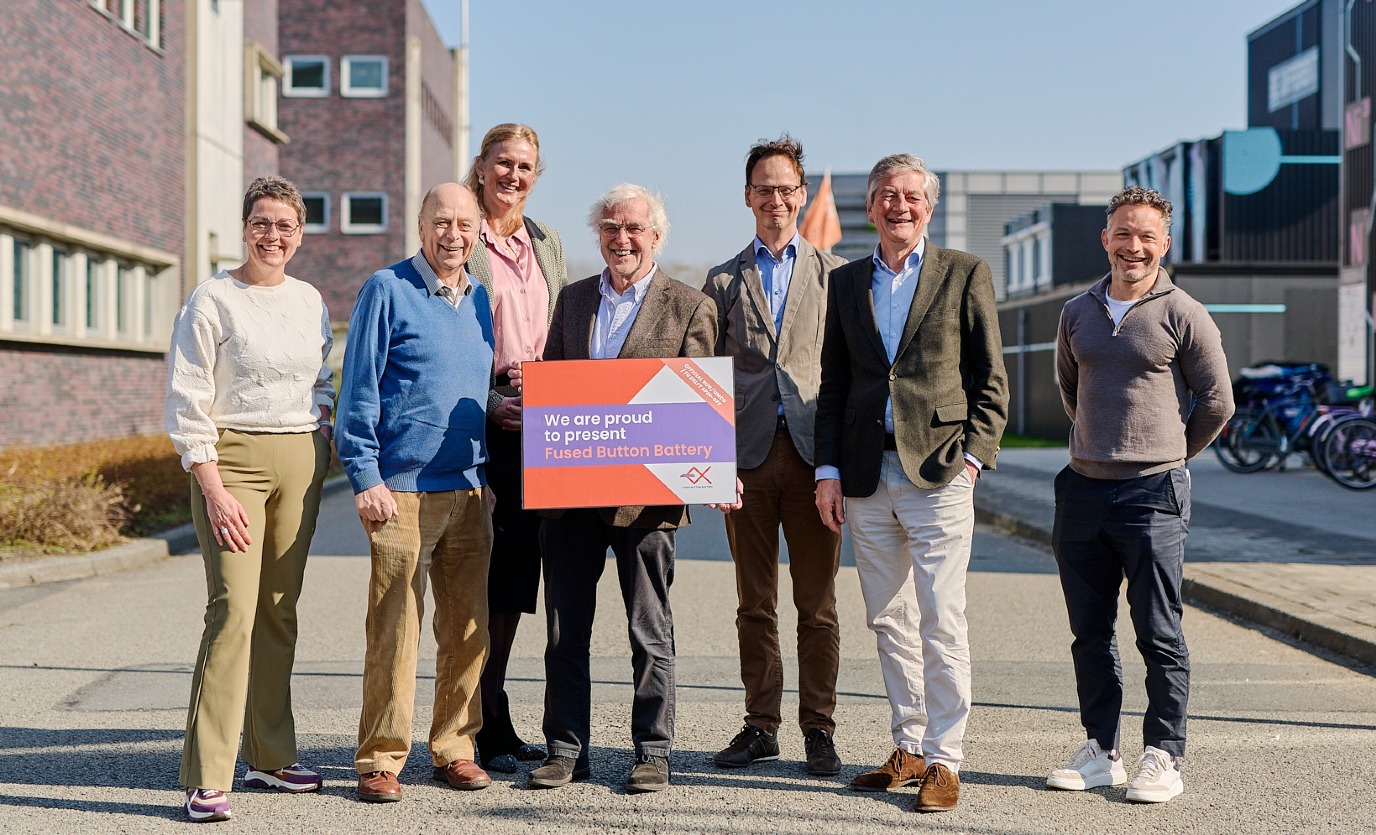Step closer to the commercialization of the child-friendly button cell battery
Fused Button Battery Holding BV has signed a license agreement with the University of Groningen (UG), the University Medical Center Groningen (UMCG), and Delft University of Technology (TU Delft). The agreement marks a crucial step in the commercialization of the patented child-friendly button cell battery.
Button cell batteries are commonly found in everyday household items such as car keys, LED candles, and children's toys. While they are convenient, they pose a serious health risk if accidentally swallowed, particularly for young children.
Safety mechanism prevents harm
The basis of the patent lies in an integrated safety mechanism that automatically deactivates the battery when swallowed. This feature effectively prevents any tissue damage, making it a significant advancement in battery safety.
The child-friendly button cell battery is a joint initiative by cardiothoracic surgeon prof. dr. Tjark Ebels, ENT physician prof. dr. Frederik G. Dikkers (both former UMCG), prof. dr. Erik Frijlink, Anko Eissens (UG), as well as prof. dr. ir. Marnix Wagemaker, and Research Technician Frans Ooms (TU Delft).
A joint innovation
Tjark Ebels explains: “Many parents are unaware that swallowing a button cell battery can be life-threatening. Once ingested, the electrical current from the battery immediately begins to dissolve tissue, potentially leading to severe injuries or even death. Having recognized this risk, Frederik Dikkers and I reached out to Marnix Wagemaker of TU Delft’s Battery Research Group Storage of Electrochemical Energy. Research Technician Frans Ooms then strengthened the team and, by bringing medical and battery knowledge together, we developed a child-friendly button cell battery, resulting in a joint patent application.”
Test continues after picture

At this stage, Erik Frijlink and Anko Eissens (UG) contributed their expertise to further enhance the innovative fused button battery design. Drawing on their deep knowledge of pharmaceutical technology and material sciences, they played a pivotal role in refining the patented concept. The collaboration led to a second patent application, marking another significant milestone in the advancement of this life-saving technology.
A real-world impact on society
Prof. Wiro Niessen, Dean of the Faculty of Medical Sciences at the UG and member of the Board of Directors of the UMCG, emphasizes the societal impact of the innovation: “This is a great example of how research can truly make an impact. It is admirable that our clinicians have proactively sought a solution to this problem, and their collaboration with scientists at TU Delft, and the University of Groningen highlights the power of interdisciplinary teamwork. While the battery is not yet commercially available, discussions with industry partners are promising. There is a growing consensus on society’s obligation to protect children from the dangers of swallowing a button cell battery.”
From mission to market
The team, which has already won several awards and secured a €300,000 investment from Future Tech Ventures, will now focus on further optimizing the battery and forging strong industry partnerships to bring this life-saving innovation to market.
More information:
More news
-
29 January 2026
Microplastic research - media hype or real danger?
-
27 January 2026
ERC Proof of Concept grant for Maria Loi
